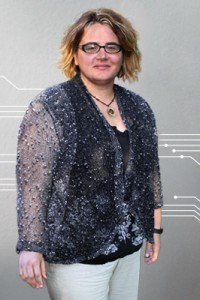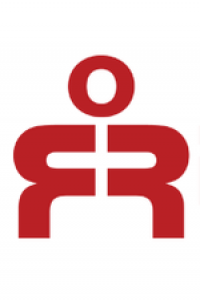Veronica Roth: Chosen One

Veronica Anne Roth was born August 19, 1988 in New York and grew up in Barrington IL. She attended Carleton College for a year, then transferred to Northwestern University, where she studied and writing. In 2011, Roth married photographer Nelson Fitch.
Roth sold her debut novel, Divergent, while she was still an undergrad. The bestselling, young-adult SF series continued with Insurgent (2012), Allegiant (2013), and collection Four (2013), and the novels were adapted as a successful feature film trilogy from 2014-16. Her Carve the Mark YA series started with Carve the Mark (2017) and continued with The Fates Divide (2018). Collection The End and Other Beginnings: Stories from the Future appeared in 2019.
Her first adult novel, fantasy Chosen Ones, was published in April 2020.
Roth lives in Chicago IL with her husband.
Excerpts from the interview:
”I started writing every day when I was around 11. I’m one of those people who knew they were a writer early. I read genre fiction from a pretty young age, without having any definitions for it, as I think is pretty common for children. They’re just like, ‘I read what I like – everything!’ I read the Baby-Sitters Club and I read Animorphs, so, everything. I didn’t have much of an awareness that there was a person behind the books, and I didn’t care who was writing them. I didn’t really articulate to myself that I wanted to be an author or have a book on the shelf – I was not concerned with that in particular. I loved writing, and when I got older, I thought, ‘I wonder if someone would pay me for this.’ That was the moment the dream was articulated. Becoming a writer went spectacularly well for me, which is fortunate, but I always loved the process more than the outcome, which is good for my mental health.
”I got a degree that’s particular to Northwestern, called English Literature with Writing. It’s a lit degree but it has a very small writing program you have to apply to. I always wrote things that were supposed to be long, but I didn’t finish them. I still have all the fragments of stories that I ever wrote, and I finished one book before Divergent, but that was it. That book was my test – can I finish something that long? I did finish, but it didn’t go anywhere, and it never will.
”I pitched that first trunk novel to agent Joanna Volpe at the Midwest Writers Workshop in Muncie IN. She’s my current agent – she rejected that book, but she gave me really helpful notes, and said, ‘This idea is not working for you, but I think you’re a good writer, so send me whatever’s next.’ What came next was Divergent, and for that, I sent out fewer query letters and I was more careful in my approach. Joanna was the first person I sent it to. I received an offer from a different agent too. That agent didn’t think it needed any work before it went on submission, while Joanna sent me nine single-spaced pages of notes, and I knew it needed work before it went on submission. I wasn’t able to figure out what work it needed, so I appreciated the guidance and trusted her judgment. I signed with her and revised the novel based on her notes, and it went on submission a few months later. Four days after it went on submission, we got an offer. What I liked most about Joanna is that she had confidence in her judgment. She knew sending me notes when I had another offer on the table might risk losing me, but she didn’t want to sign me at the expense of what she thought was the correct path for that book. That’s pretty bold, in a really nice way.
”There’s a parallel universe in Chosen Ones – that’s kind of a spoiler, but I really want to talk about it, because so much of the worldbuilding is in that universe, and it feels like a shame not to talk about it. It’s about a group of kids who go to a fantasy world, and about what happens to them years after they save the world and come back home. In the initial proposal, which was like 50 pages, I tried to tell the story in order, like a quick rundown, or a montage. It didn’t work, so I changed the structure. In subsequent drafts, I took that quest fantasy stuff out of the beginning, and and tried to layer it into the rest of the narrative, which was more successful. We needed to know what the characters had been through, though, in order to comprehend what they were going through ten years later. I decided to give that backstory in the form of these government documents, and that worked a lot better, particularly because my character Sloane requested the documents using the Freedom of Information Act – she’s reading them while we’re reading them. That helps because it’s not just giving us backstory – what she learns also influences the way that she behaves in the story itself.
”The documents are an important part of Chosen Ones. The flashbacks are why they are in there initially, but I decided to continue them throughout the rest of the book, and a lot of the research I did for the book is in those documents. Even though they’re pretty short, each one took a day to do, because I had to make a heap of worldbuilding decisions all at once. I needed a different voice for each document, especially the product review that’s right in the middle, of the siphons – I read iPhone reviews to get that right. The Abraxas brand of upscale siphons. Doing those was a joy, I don’t find that many inherent differences between adult and YA writing, because there’s a breadth in both, but I cherish the patience of adult readers, because I love doing stuff like those documents.
”At first I thought the article that starts the book might be the only one, but it became a really interesting way of revealing the backstory and influencing the forward narrative – but also building the next world, which I can’t talk about. The weirdest part was reading government documents for research. We have a lot of declassified government documents that are widely available, and I read a lot from Project MKUltra, our government’s experiments with LSD. I read hundreds of those, because they talk in a very particular way that I wanted to get right. My copy editor did not appreciate that. She said, ‘There’s passive voice everywhere.’ I said, ‘Yeah – it’s the government.’ That part was really fun – and disturbing. I learned a lot. I read some of the Stargate Project documents too, and some of Project Blue Book, the UFO investigation. It’s a sincere inquiry, and at the end they conclude, ‘There’s nothing here.’ It’s very anticlimactic.
”I also read them so I could get the formatting right, like the headers, but I researched them for the voice, too. You can also get an impression of how these departments are structured, who’s under who, who’s writing to who, and who’s supervising who – I don’t know those things about our government, so reading the documents was a good way to get a sense of the hierarchy, and how organizations contract out with people who don’t know what they’re really contributing to. That was interesting, too. I learned a lot of unsettling things about the world, researching for this book.
”I don’t have a really refined likability radar with characters. I don’t really care about that much – what I think is important is for you to understand a character, or grow to understand them, and to think they’re interesting. I knew Sloane was interesting, so I decided to just go with that. It’s so important to have female characters, in particular, who aren’t necessarily warm and friendly. She gets to be an antihero. It’s not that characters like that don’t exist, but they didn’t exist much when I was growing up. For me to write a woman like that felt cathartic. Sloane is so angry – and she has reason to be, so that was a focus, too: just letting her have PTSD. PTSD doesn’t make everyone into a jerk, but it could, and it’s understandable, even if it isn’t pleasant.
”I don’t have PTSD, but I do have an anxiety disorder. I do events and I’m a confident public speaker, and when I talk about having anxiety, people say, ‘Oh, you don’t seem like you have anxiety.’ I don’t know how many people seem like they have anxiety – that’s not something that you can really see necessarily. I like finding that contrast in Sloane, and that’s why the book starts with a horrible article about her, a misogynistic piece that describes her as this tough, don’t-give-a-fuck kind of person. That article is how we meet her, and the chapter immediately following has a mid-panic attack flashback for her. Establishing that contrast immediately.
”I love Chicago, and that’s the reason I set books there. I’ve tried to think of more sophisticated reasons, but I honestly just love it here. When you write a book you have to live there in your mind for over a year, so it should take place somewhere you find interesting. Chicago worked well for Chosen Ones, because I was developing an alternate history for this world, and you can see Chicago’s history in all the buildings and the architecture. I thought that would be a dynamic way of making the reader aware that we’re in an alternate universe, because the buildings don’t look the same. Where are all the modernist buildings? They’re all gone.
”I’m not sure why struggles with family/relationships are a theme for me – I have a really strong relationship with my family. At one point Sloane asks Albie one of the other chosen ones, why they were picked from all the people who were qualified for this prophecy. Her theory is that it’s because those other people’s parents wouldn’t allow them to be taken away by the government. What all the chosen ones have in common are negligent parents, basically. The idea naturally comes up: ‘If our families suck, then we have to be each other’s family.’ When you’re not tied by blood, though, there’s a feeling that you could lose someone at any moment. Sloane is always worried she’s going to push people too far. She doesn’t think she’s worth sticking around for, which is part of her complicated psychology.”
Interview design by Francesca Myman. Photo by Nelson Fitch.
Read the full interview in the July 2020 issue of Locus.
 While you are here, please take a moment to support Locus with a one-time or recurring donation. We rely on reader donations to keep the magazine and site going, and would like to keep the site paywall free, but WE NEED YOUR FINANCIAL SUPPORT to continue quality coverage of the science fiction and fantasy field.
While you are here, please take a moment to support Locus with a one-time or recurring donation. We rely on reader donations to keep the magazine and site going, and would like to keep the site paywall free, but WE NEED YOUR FINANCIAL SUPPORT to continue quality coverage of the science fiction and fantasy field.






